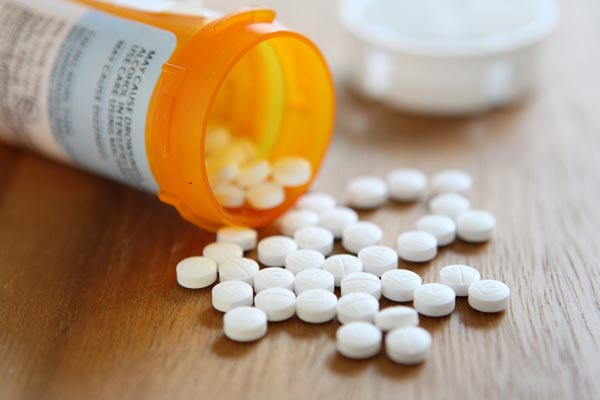Table of Contents
There is very little statistical data on sex addiction. However, one study of 2,000 American men and women found more than 8% reported having compulsive sexual behavior disorder (CSBD). But when does sex become an addiction? Other reports claim the prevalence is between 3% and 6% of the population.
Sex addiction has many names, including compulsive sexual behavior disorder. It is also called hypersexuality, paraphilia, erotomania, Don Juanism, and sexual dependence. There is controversy surrounding sex addiction. Some people argue having a healthy libido is a good thing. Some claim having too much of a sex drive is a bad thing. So, where is the line between healthy and unhealthy drawn?
To find out, you must first consider the definition of sex addiction.
Sex Addiction Defined
The American Psychological Association (APA) defines sex addiction as behaviors related to sex that have become problematic. Although sex addiction is not recognized as a disorder in the Diagnostic and Statistical Manual of Mental Disorders, 5th edition (DSM5), the World Health Organization classified it as a mental health disorder in 2018.
Also, in 2018, the International Classification of Diseases included CSBD as a disorder and set diagnostic criteria. Criteria stress that a person has made significant attempts to control behaviors without success, resulting in extreme distress and impairment in multiple areas of life.
Researchers have developed a list of factors to help define it.
Factors associated with sex addiction include:
- Inability to control sexual behaviors.
- Behaviors have led to negative consequences.
- Inability to stop sexual behaviors.
- Spending a lot of time seeking or satisfying sexual behaviors.
- Sexual behaviors have interfered with personal, professional, and social responsibilities.
These same factors are used to define other types of addictions, yet the APA insists sex addiction does not exist but is a matter of compulsively satisfying desires. Part of their denial is a lack of empirical evidence supporting sex can be addictive.
Sex and the Brain
Studies show that someone engaged in sexually compulsive behaviors is the same as someone’s brain activity addicted to alcohol or drugs. The brain areas include three regions involved in processing reward and motivation, anticipating reward, cravings, and connecting emotions to significant events.
Signs of Addiction
The list of behaviors representative of sex addiction is lengthy and is still developing because there is little research. Behaviors noted to date include compulsive and excessive.
- Masturbation
- Infidelity, multiple affairs
- One-night stands
- Unsafe sex
- Cybersex
- Sex in risky places
- Viewing pornography
- Meeting sex workers
- Exhibitionism
Emotionally, people with a sex addiction love to fall in love and often enter into new relationships with “the one.” It is not the same as love addiction, however. The progression of relationships happens quickly. Just like with other addictions, the consequences can be damaging.
Consequences of Sex Addiction
Not only can sex addiction interferes with relationships, but it can also make you want to isolate and withdraw from family and friends. It can lead to mental health issues like depression and anxiety. Some people start misusing alcohol or drugs to cope with feelings of shame and guilt.
Physical consequences include sexually transmitted diseases and sexual or physical assaults. If left untreated, sex addiction can interfere with productivity at work, leading to consequences such as being fired or demoted. If you aren’t working, you are having financial problems. It will be hard to pay your bills if you have financial issues, including car and house payments.
For some, sex addiction can lead to criminal activity. The consequences have a domino effect, eventually affecting all areas of your life.
What Causes Sex Addiction
There is not a conclusive answer as to what causes sex addiction yet. However, like with other addictions, biological, psychological, and social factors are likely contributors. Genetics play a role in addiction. If any family member has an addiction, you may carry the same genes. Carrying the gene does not guarantee you will have an addiction, however.
Men and women have hormones like estrogen and testosterone that boost libido. Higher levels of these hormones may contribute to addiction. The environment you were raised in and your current one can influence your behaviors. If you were raised in an environment where sexual content and behavior were forced on you or expected, you might see compulsive sexual behaviors as normal.
Underlying psychological and physical conditions may also lead to addiction. Some use sex to alleviate other symptoms, a form of self-medication. Even though the relief is temporary, it makes you feel better. That may also be what keeps you participating in compulsive behaviors.
Getting Help
Treatment starts with an extensive assessment with a licensed mental health therapist. The evaluation is necessary for creating a treatment plan that will work. Sex addiction is usually treated on an outpatient basis through intensive outpatient or individual counseling. Many also attend support groups with peers who also have a sex addiction.
In individual and group therapies, you can expect to receive cognitive behavioral therapy (CBT), a form of talk therapy that addresses the root cause of your sex addictio ands the solutions for change. A sub-therapy of CBT is commitment and acceptance therapy, in which you learn to do just that, accept your urges, and commit to a plan of action to control them.
Couples counseling and family therapy are provided at every level of treatment. Addiction of any kind affects your partner and the rest of your family. Everyone needs to heal from the impact it has had on relationships.
Medication options include antidepressants and naltrexone, commonly used in alcohol and opioid treatment, which may suppress sexually compulsive behaviors.
If you have questions or want to learn more about the specific treatments, call us. We are here for you 24/7 and can help you break the hold of addiction and get back to enjoying the life you deserve.
Sources:
- Fox M. Sex addiction may affect 10 percent of men, survey finds. NBC News. Published November 10, 2018. Accessed October 5, 2022. https://www.nbcnews.com/health/health-news/sex-addiction-may-affect-10-percent-men-survey-finds-n934456
- Karila L, Wery A, Weinstein A, et al. Sexual Addiction or Hypersexual Disorder: Different Terms for the Same Problem? A Review of the Literature. Current Pharmaceutical Design. 2014;20(25):4012-4020.
- University of Cambridge. Brain activity in sex addiction mirrors that of drug addiction. ScienceDaily. Published July 11, 2014. Accessed October 5, 2022. https://www.sciencedaily.com/releases/2014/07/140711153327.htm
- Katehakis A. Sex and Love Addiction: What’s the Difference? | Psychology Today. Published June 28, 2011. Accessed October 5, 2022. https://www.psychologytoday.com/us/blog/sex-lies-trauma/201106/sex-and-love-addiction-whats-the-difference
- Gillette H. What Causes Sex Addiction? | Psych Central. Published May 19, 2021. Accessed October 5, 2022. https://psychcentral.com/lib/what-causes-sex-addiction
The Heights Treatment Editorial Guidelines
There is a vast amount of misinformation online especially as it relates to health & wellness. We have made it our mission at The Heights Treatment to provide accurate, medically sound content that has been medically reviewed by a doctorate level clinician so that you can trust the information contained within our website.





